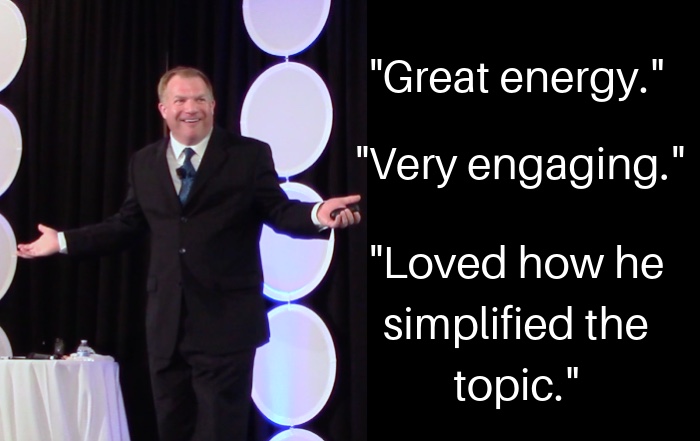 As leaders face new challenges, they may appreciate how TV news anchors learn from mistakes. News is a fast paced world and it’s not uncommon to see a particular kind of mistake, the on-air stumble.
As leaders face new challenges, they may appreciate how TV news anchors learn from mistakes. News is a fast paced world and it’s not uncommon to see a particular kind of mistake, the on-air stumble.
This can be caused by a poorly worded sentence, a distractions in the studio and the field, or having the wrong script loaded in the teleprompter. And yes, sometime, the anchor or reporter simply messes up.
As someone who spent a decade in TV news, I had my share of stumbles and I’m sure some are immortalized on blooper reels. I realize there are some important business lessons from how you handle these moments. Consider these suggestions, as you deal with future mistakes:
You Have to Move Forward
Once you stumble on-air, you have to keep moving forward. As they say in showbiz, “The show must go on.” There’s not an option to throw in the towel and walk away from the camera. You have to continue telling the story, even if it’s a bit rough.
Ideally, you want to treat these moments like you would a fly landing on you. While you may not be thrilled by the insect’s visit, most will just shake the fly away and continue with what they were doing. You don’t let a fly control the rest of your day.
In your business, does a mistake stop progress? Do people become fixated on a moment and lose track of the big picture? Or do they use a mistake as an excuse to delay action?
This is especially important with customer service. Knowing about a problem and not changing anything, will later likely haunt you. Learn from mistakes and improve.
While it may be frightening to continue, it’s better to keep moving forward, even if it feels uncomfortable.
Regroup Through Preparation
One way news people can move forward is through preparation. While anchors read off a teleprompter, they also have paper scripts. Those scripts are your backup, should something go wrong with the teleprompter.
In the field, reporters will often hold small notebooks with a few key points jotted down.
While it’s an extra step to do these things, they are like insurance policies. You can feel confident in having a backup system should something go wrong.
In your professional world, do you have backups that allow employees to perform well when there is some kind of unexpected challenge? From equipment breaking to staff members being out of the office due to an emergency, these things happen and can have a great impact on your business.
Take a moment and go through your important processes and see if you can strengthen them through preparation.
Simplify to Prevent Problems
Most news anchors will pre-read their scripts, as you’re having to cover a lot of different information, in a short amount of time. Keep in mind that producers and reporters write the bulk of the stories the anchors are reading.
Sometimes, you would encounter a sentence that was grammatically correct but was difficult to read out loud. Usually, this meant you had to simplify it. If it’s long, then you would break it into two sentences or just rewrite the whole thing.
News anchors also write out certain names and phrases phonetically to avoid pronunciation problems.
In your line of work, are there processes or procedures that are just too complicated and set people up for failure? Reoccurring mistakes often suggest future improvements.
Watch Yourself
A TV news consultant once gave me a great piece of advice, when he said that if you wanted to advance in your career, you needed to watch yourself after the newscast.
This allowed you to look at the recording and notice what you were doing right and what you were doing wrong. Those wrong things could be little bad habits that could be a turnoff for a potential future employer at a bigger and better station.
This wasn’t exactly a fun exercise, as who likes to see their mistakes? It was much easier to just go home. But the review process represented a path to improvement and ultimately was a smart investment in time.
In your business, do you learn from mistakes by looking at what’s working well and what could be improved? You’ll be tempted to find a whole bunch of other things to do that will delay this process. But if you don’t look for potential problems, then you may be allowing them to define your future success.






